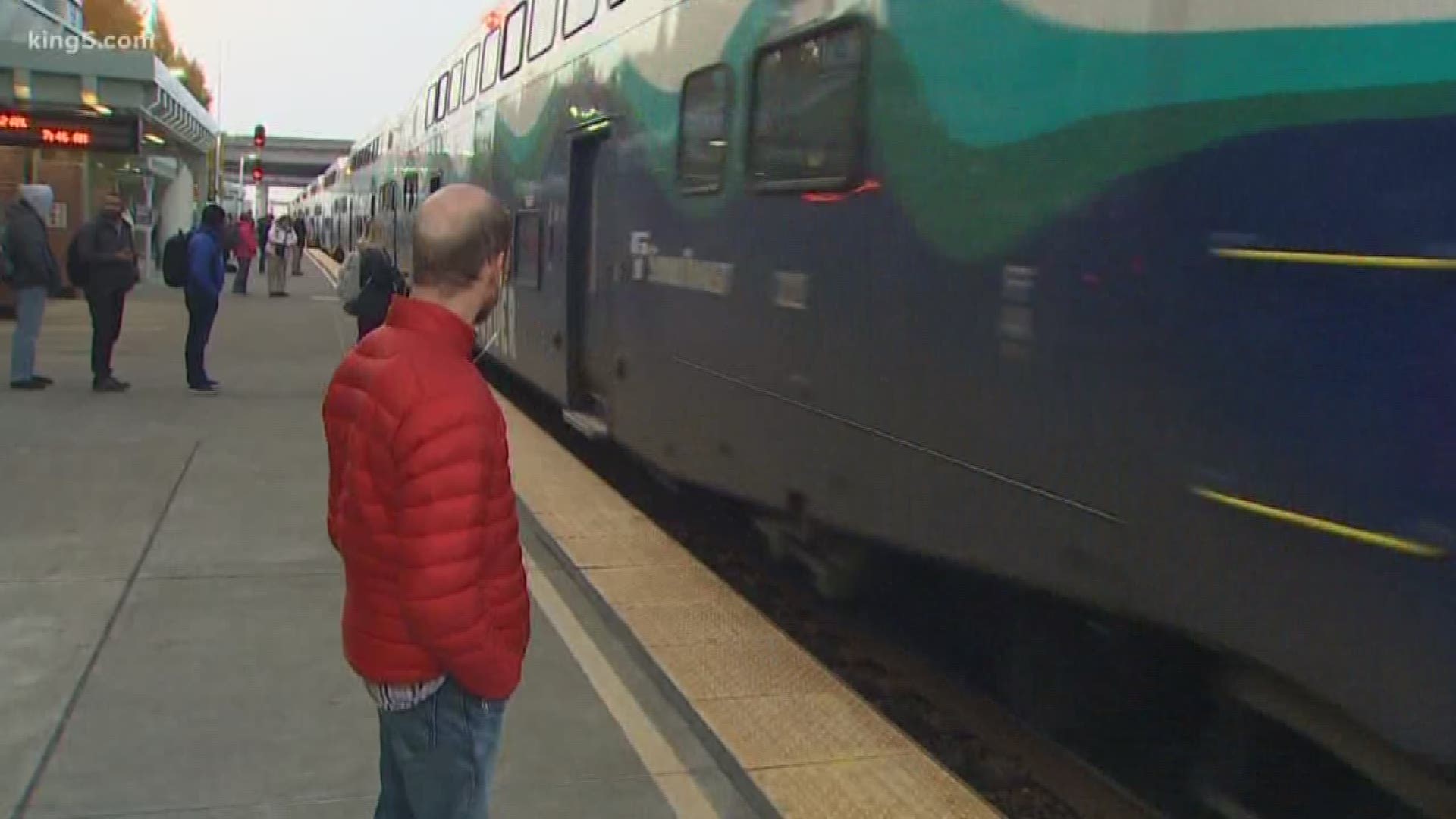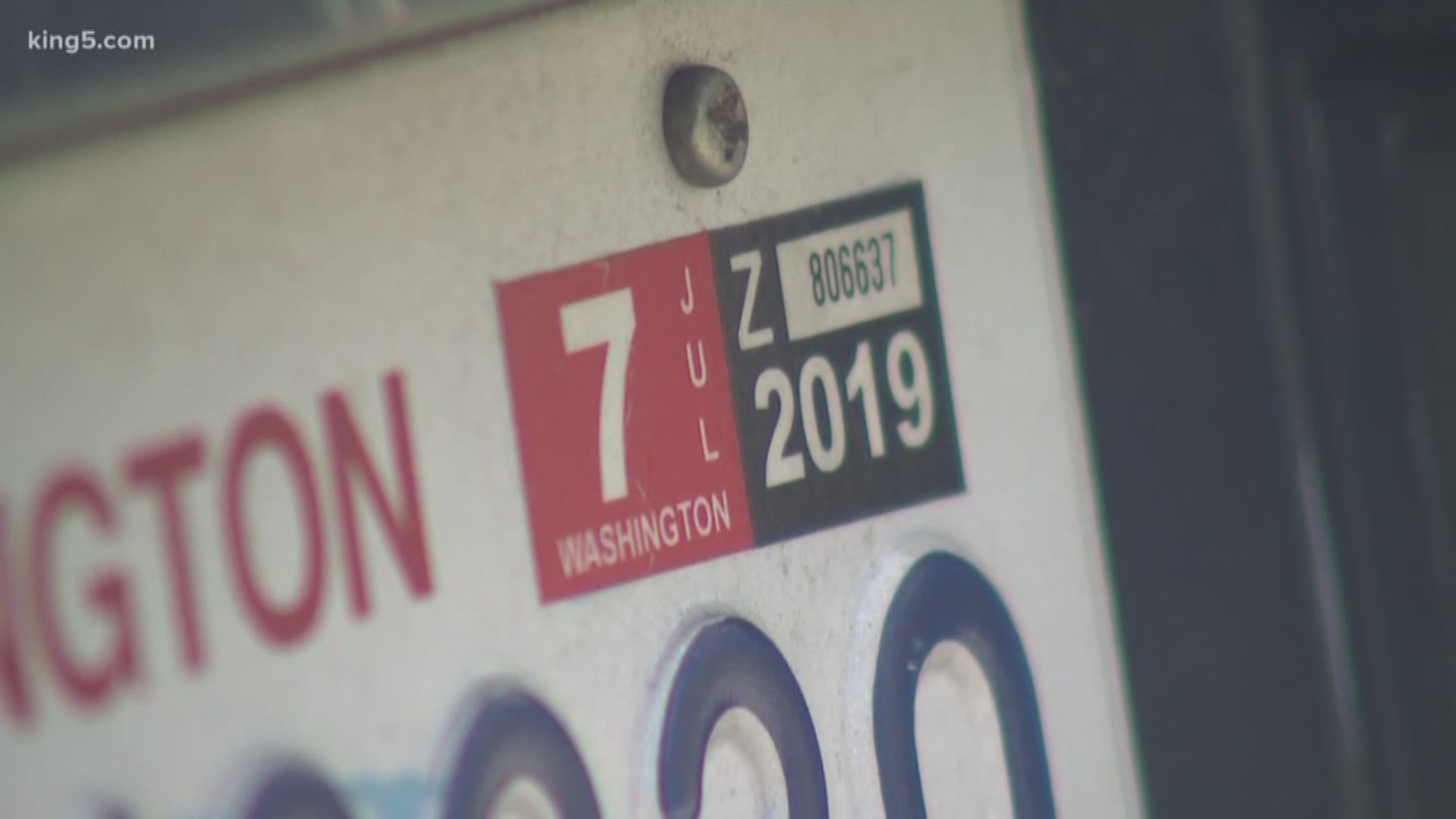OLYMPIA, Wash. — Gov. Jay Inslee has taken immediate action after voters approved an initiative that would slash car-tab fees.
The Associated Press called the measure Wednesday.
After the fourth round of results were released Friday, 53.23% of voters are approving Initiative 976 and 46.77% are rejecting it. The initiative will eliminate extra fees for everything from electric vehicles to Sound Transit light rail projects by capping state car-tab fees at $30.
Inslee said he has directed the Washington State Department of Transportation to postpone projects not yet underway.
He said he has also asked "other state agencies that receive transportation funding, including Washington State Patrol and the Department of Licensing, to defer non-essential spending" as he reviews impacts.
"It is clear that the majority of voters objected to current car tab levels. It is also clear that this vote means there will be adverse impacts on our state transportation system," Inslee said in a statement. “I will work with legislators, agency leadership and stakeholders on how best to respond to the impacts of this initiative."
As of Friday, the initiative was passing in all but five counties in Washington state – King, Jefferson, Thurston, Island, and San Juan voters are all rejecting I-976. The "no" side is carried heavily by King County voters, who are rejecting the measure at 59.07%.
Interestingly, Snohomish County, which in 2016 approved a $54 billion mass transit tax package that caused car-tab fees to skyrocket, is in favor of cheaper car-tabs. As of Thursday, about 59.7% of Snohomish voters are approving I-976 after voting in favor of Sound Transit 3 three years ago.
In Seattle, an $80 car-tab fee pays for, among other things, bus and light-rail passes for students and residents who live in public housing.
Pierce County Executive Bruce Dammeier, a Sound Transit board member, voted in favor of the initiative. He knows the car-tab cap could derail construction projects in his county, but he said he wanted to send a message to the state and Sound Transit that the current car valuation system is unfair.
”I hope they get the message this time. I hope they don’t try to do away with the vote in some way or punish us for the vote,” said Dammeier, a Republican.
The state’s budget office estimates the passage of I-976 will eliminate more than $4 billion in tax revenue by 2025.
Initiative sponsor and anti-tax activist Tim Eyman said the state should use reserves and the Rainy Day Fund to pay for construction projects. Eyman said voters are tired of paying hundreds of dollars to renew car tabs.
"Honesty won at the ballot box," said Eyman, during a press conference Tuesday evening, "because the voters finally had a chance to say enough with the dishonest tax, let's bring in something that's actually honest."
State lawmakers have introduced bills aimed at changing the vehicle valuation formula in recent years but they've failed to gain support.
More than 60 cities use car-tab fees to pay for road construction, bus service and sidewalks. In addition, the state charges fees to help pay for a variety of programs including Washington State Patrol traffic enforcement, highway maintenance, ferry operations and maintenance of county roads and bridges.
State House Transportation Committee Chair Rep. Jake Fey, D-Tacoma, expects legislators to come up with funding for those 60 cities, but he did not expect any new taxes to be raised to make up for lost revenue. He expected construction projects to be cut.
”We’ve got a world of hurt. We’re gonna figure out how we’re going to deal with it," said Fey.
King County Executive Dow Constantine said Wednesday he has asked the King County Prosecuting Attorney's Office to prepare a lawsuit to challenge the measure's constitutionality.
Seattle Mayor Jenny Durkan and other government leaders have been vocal in their opposition and over a half-dozen city councils passed resolutions against it. The city of Olympia also sent a mailer urging people to vote no which the state Public Disclosure Commission said it would investigate because state law prohibits city councils from using public resources to promote or oppose measures.
Eyman is also using the initiative to try and undo a car-tab fee hike collected by Sound Transit in the Puget Sound region, which uses a method of vehicle valuation that inflates some car values. Voters approved the increase as part of a light-rail expansion package in 2016 for King, Snohomish, and Pierce counties.
With I-976's passage, the agency stands to lose about $328 million a year, or about 11% of its annual revenue, according to the state analysis. Sound Transit said it could lose about $13 billion more over 20 years because of higher borrowing costs and possible project delays.
In a statement Wednesday morning, Sound Transit Board Chairman and Redmond Mayor John Marchione said the board would hear from its finance staff and lawyer at its Nov. 21 meeting.
"The Board will consider Sound Transit's obligations to taxpayers who want their motor vehicle excise taxes reduced, as well as how to realize voters' earlier direction to dramatically expand high capacity transit throughout the Puget Sound region," Marchione said.
Eyman's $30 car tab initiative first passed 20 years ago. It was struck down in court before being enacted by lawmakers. The fees have crept up in recent years as lawmakers allowed them and voters approved them.
Eyman's latest measure comes as he fights a campaign finance lawsuit filed against him by Attorney General Bob Ferguson. Eyman has been held in contempt of court for refusing to cooperate with court rules while a judge has ordered a for-profit signature-gathering firm to pay over $1 million for deceiving state residents by funneling their campaign donations to Eyman for his personal use.


